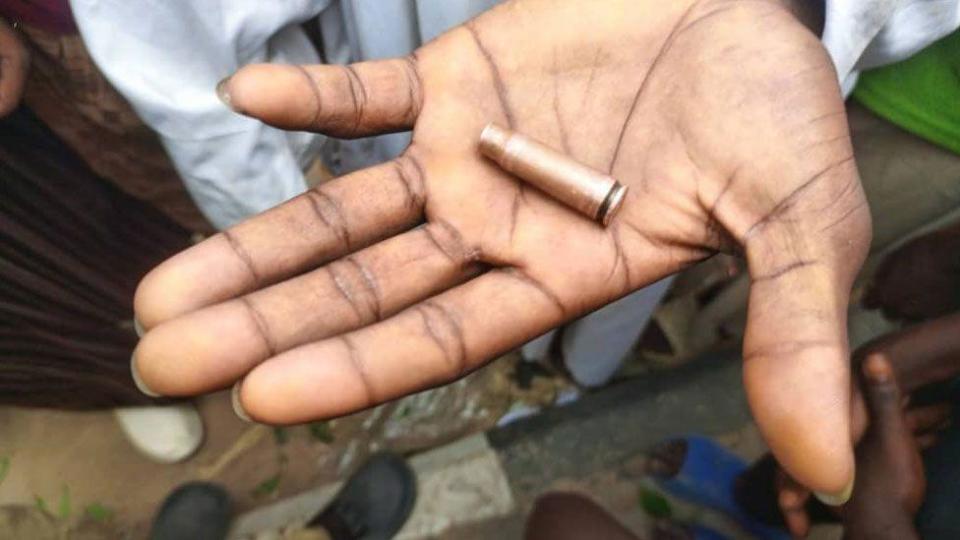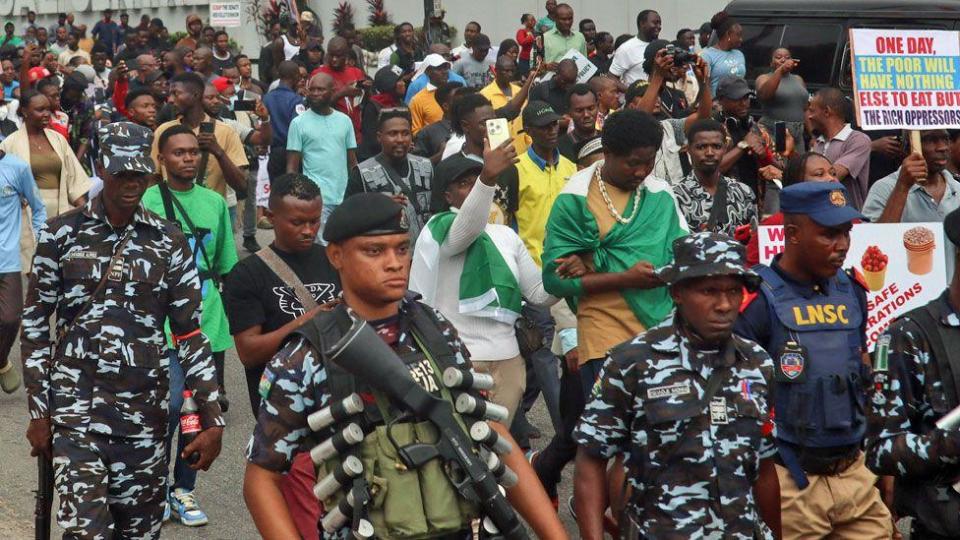Nigerian police have fired live bullets and tear gas to try and disperse thousands of protesters in the northern city of Kano rallying against the rising cost of living.
Demonstrations are taking place in major cities across the country with some protesters chanting: “We are hungry.”
In Kano, which has seen the largest crowds so far, the gunshots were fired after protesters set alight tyres to make a bonfire in front of the state governor’s house. Four wounded people have been taken to hospital.
The protests have been organised via social media and inspired by the recent success protesters in Kenya who forced the government to scrap plans to increase taxes.
Officers have also sprayed hot water on the crowds in Kano, but they remain on the streets.
On Wednesday night, a court ordered that protesters in the capital, Abuja, to keep to the National stadium, which is located on the city’s outskirts.
But after gathering at the stadium’s gate on Thursday morning, the demonstrators – who have also been shouting the refrain “End bad governance” – began heading into the city centre.
This prompted police to fire tear-gas cannisters to try and stop the procession, which is affecting traffic.
Many of Abuja’s businesses, including banks, are closed.
The security forces are deployed at strategic locations within the capital and in surrounding towns.
In Lagos, Nigeria’s economic hub, shops are also closed – like elsewhere in the country – and the protest is slowly growing in strength.
They are making their way to the area of Ojota, where the government said the protesters could gather, and have been shouting “ole”, meaning “thief” in the Yoruba language – in reference to President Bola Tinubu and his government.
Many are angered by President Tinubu’s removal of a subsidy on fuel – announced with immediate effect during his inauguration speech in May 2023.
It was aimed at cutting government expenditure, but sent pump prices soaring with a ripple effect on other goods.
“Top on our demand is the subsidy removal. The government should reverse that decision,” Abuja protester Abiodun Sanusi told the BBC.
They also want the government to carry out wide-ranging reforms to the country’s electoral system and the judiciary.
Dabiraoluwa Adeyinka, an activist who is protesting in Lagos, said the aim of the demonstration was to get the price hikes on essential commodities reversed.
“If they don’t yield, we will continue to protest,” she told the BBC
Additional reporting from BBC reporters Zaharadeen Lawal in Kano, Chris Ewokor in Abuja & Simi Jolaoso in Lagos.




You may also be interested in:


Go to BBCAfrica.com for more news from the African continent.
Follow us on Twitter @BBCAfrica, on Facebook at BBC Africa or on Instagram at bbcafrica







